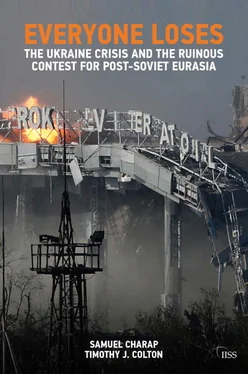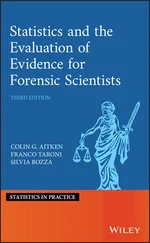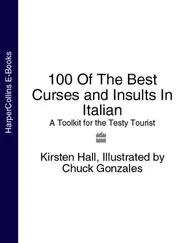He had not cleared the rebranding with Nursultan Nazarbaev, the president of Kazakhstan, who was incensed, and demanded that ‘Economic’ be inserted into the name. The tiff with Putin was about far more than just word choice. Neither Nazarbaev nor Belarusian President Alexander Lukashenko was interested in more than economics, and they were particularly skittish about any effort to impinge on their political independence. Furthermore, they had not signed up for Moscow’s omnibus geopolitical vision for the EEU. [68] Putin’s conception of the Eurasian bloc forming an independent pole in global politics was remarkably similar to the way in which Russian officials talked about their aspirations for Russia.
A few weeks after Putin published his article, Nazarbaev wrote his own piece for Izvestiya , in which he stressed that ‘economic interests, and not abstract geopolitical ideas and slogans, are the main driver of the integration process’. [69] Nursultan Nazarbaev, ‘Evraziiskii Soyuz: ot idei k istorii budushchego’, Izvestiya , 25 October 2011, http://izvestia.ru/news/504908 .
That he was victorious on the name issue demonstrates that the EEU does give the non-Russian members some influence over important decisions.
In his Izvestiya article, Putin had noted that while ‘we welcome other CIS partners’ joining [the Union]… we do not plan to rush or compel anyone [to do so]’. He claimed that joining the Union need not contradict others’ ‘European choice’, because in the future, there would be bloc-to-bloc rapprochement talks. ‘So joining the Eurasian Union… will allow each of its members to integrate with Europe faster and on more advantageous terms.’ [70] Putin, ‘Novyi integratsionnyi proekt dlya Evrazii’.
Unlike Putin’s 2005 comments in Kyiv, when he said that the approximation of Russian and EU legislation would allow its neighbours to integrate with both simultaneously, he now envisioned two separate blocs in Europe that would cut deals with one another but remain distinct. Under these circumstances, bandwagoning with Russia would be the only sensible option for CIS countries. The unspoken message to the In-Betweens was clear: Moscow wants to determine the extent and pace of their integration with the EU. Dealing directly with Brussels was not advisable.
The geo-economic dimension of the regional contestation had now taken on more significance, with both sides pursuing zero-sum policies. Russia, reverting to its coercive instincts, put pressure on the four In-Betweens that were flirting with the EU to block their Association Agreements and in some cases also to join the EEU. In the Georgian case, Moscow’s pull was limited; diplomatic ties had been severed in 2008 and Russia was no longer Georgia’s main trading partner. Moscow threatened to raise tariffs if Tbilisi signed the AA, but never followed through. In this case, the threat failed to sway Tbilisi; its AA was inked in June 2014.
Moscow did resort to economic coercion with Moldova. In September 2013, two months before Chisinau planned to initial its AA, Moldovan wine exports to Russia were banned on public-health grounds. Further sanitary restrictions were imposed in April and July 2014 and the next month Russia suspended tariff-free imports for 19 categories of goods. [71] Denis Cenusa et al., ‘Russia’s Punitive Trade Policy Measures towards Ukraine, Moldova and Georgia’, CEPS Working Document, Centre for European Policy Studies, September 2014, pp. 7–8.
Russia’s economic bullying failed to affect Moldova’s choice to proceed with the AA, which it signed at the same time as Georgia in June 2014.
Russia also turned the screws on Armenia, and here it worked. Armenia had been negotiating an AA with the EU for three years, and the two sides planned to initial the document in November 2013. However, in September 2013 Armenian President Serzh Sargsyan abruptly changed course and announced his country’s intention to drop the AA and join the EEU. He was widely reported to have been put under significant pressure from Moscow to do so.
Armenia’s about-face reflected its deep dependence on Russia not only for economic prosperity but also for security. Russian state firms own most of its utilities, including the railway and the natural-gas distributor, while private financial-industrial groups from Russia dominate other strategic sectors. And, given Armenia’s economic isolation – its borders with hostile Azerbaijan and Turkey have been closed off for 20 years – and resulting poverty, Yerevan has no alternative to Moscow’s patronage. It also relies on Russian security guarantees and military assistance in its conflict with Azerbaijan over Nagorno-Karabakh. After a year of talks that led to a number of concessions, including on import duties and gas prices, Armenia signed the EEU treaty in October 2014, becoming a rare case of a trade-bloc participant that shares no borders with its fellow members. Talks on membership for Kyrgyzstan, which shares borders with Kazakhstan (and China) but not with Russia, also began in 2014, and Bishkek joined in August 2015.
A deceptive calm
Although the geo-economic zero-sum interplay between Russia and the EU picked up after the 2008 war, in the period between that conflict and the Ukraine crisis in 2014 there was a noticeable diminution of the intensity of the overall regional contestation. However, this intermission arose from contingent, circumstantial factors that served to paper over the underlying problem without a serious effort to negate its causes.
The first factor preceded the short war in the South Caucasus by three months: the swearing in of Dmitry Medvedev as Russian president. While the differences between him and Putin should not be exaggerated, his presidency did have a positive effect on the relationship with the West. Most importantly, he wasn’t Putin, who had come to be personally associated with a truculent approach to foreign policy. Medvedev was a fresh face without the same political baggage. He also did not share the same sense of personal betrayal that Putin seemed to wear on his sleeve in dealings with Western leaders. Additionally, his agenda of economic modernisation led him to seek some measure of normalisation in relations with the West. [72] See the draft foreign-policy strategy produced for Medvedev, as leaked to the press: ‘O programme effektivnogo ispol’zovaniya na sistemnoi osnove vneshnepoliticheskikh faktorov v tselyakh dolgosrochnogo razvitiya Rossiiskoi Federatsii’, https://www.hse.ru/data/2010/09/27/1223786940/Foreign_policy_for_modernisation_program.doc .
Soon after the changing of the guard in Moscow, leadership turned over in Washington. Barack Obama, and his team that took office in January 2009, were not interested in playing ‘great games’ (a reference to the nineteenth-century rivalry between Britain and Russia in Central Asia) or pursuing other policies that were egregiously confrontational toward Russia in post-Soviet Eurasia. ‘Reject idea of “Great Game” in Central Asia’ was a bullet point on an official presentation of the administration’s Russia policy. [73] Michael McFaul, ‘Assessing the “Reset”: Past Progress, Future Steps’, Presentation, Peterson Institute for International Economics, 15 April 2011, https://piie.com/sites/default/files/publications/papers/mcfaul20110415.pdf .
The US ceased pushing the NATO MAP issue for Georgia and Ukraine, and generally dialled back the competitive dynamic in the region.
A third leadership change also contributed to the lull: the election of Viktor Yanukovych as president of Ukraine in February 2010. Yanukovych never fully deserved the moniker ‘pro-Russian’, but certainly he was far less gratuitously anti-Russian than his predecessor Yushchenko. Soon after taking office, Yanukovych signed a new foreign-policy doctrine renouncing Ukraine’s NATO membership aspirations in favour of pozablokovist’ (‘non-blocness’, i.e., neutrality). In April 2010, he signed a 25-year extension of Russia’s lease on the Black Sea Fleet in return for a discounted gas price. Ukraine, always the most important arena of competition, had removed itself from the geopolitical game (though not the geo-economic one, as we shall see).
Читать дальше











